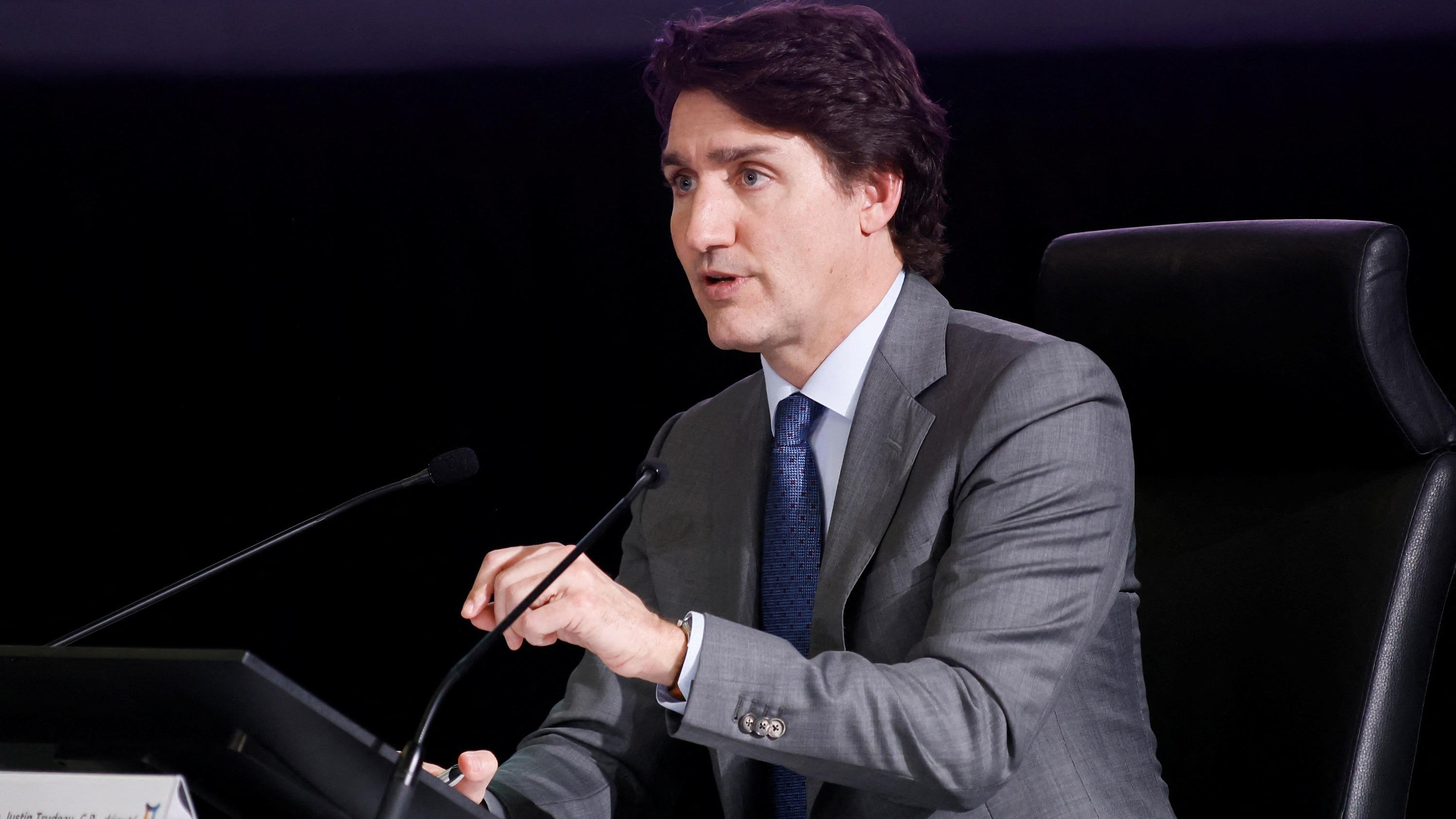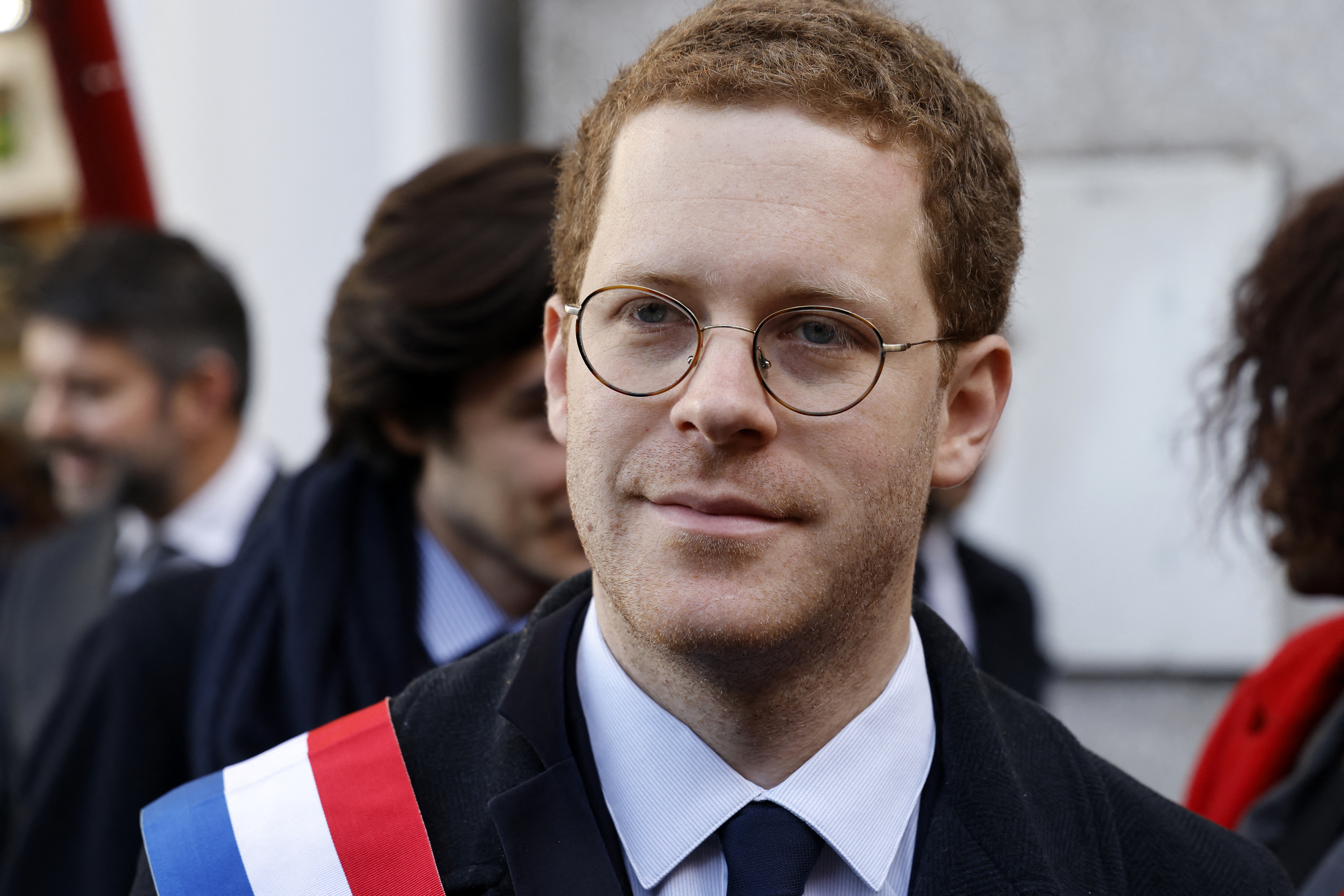On Friday, two days after the peace agreement, an angry Tigray doctor took to Twitter to speak out. And dampened the burgeoning hope of an early end to this conflict in Ethiopia, which is one of the most brutal in the world.
The United Nations World Food Program's trucks carrying life-saving medicine have still not received government permission to go to Tigray, he wrote: "Every minute we lose patients. Time is running out for emergency and dialysis patients.”
On Wednesday, after tough talks in South Africa's capital Pretoria, representatives of the Ethiopian government and the insurgent People's Liberation Front of Tigray (TPLF) signed a nine-page ceasefire agreement that reads like a capitulation by the TPLF: disarming of its troops, the abandonment of Tigray's independence efforts, the Recognition of Ethiopian state authority and consent to the establishment of an interim administration.
In return, the government of Prime Minister Abiy Ahmed promised the end of an unprecedented blockade - in addition to the roads to Tigray, access to the internet, electricity, commercial goods and bank accounts for the region's approximately seven million inhabitants had been cut more than a year ago. Tigray is now to be reconnected within an "agreed time frame" and the TPLF's classification as a "terrorist organization" is to be lifted.
At first glance, all of this looks like a breakthrough in this conflict that has been going on for two years and has left tens, maybe even hundreds of thousands dead. Both sides had to give in. The TPLF because the Ethiopian and Eritrean troops in Tigray had advanced too far.
And Ethiopia's government, because the economic crisis and inflation in Africa's second most populous nation (118 million people) were spiraling out of control, but the International Monetary Fund (IMF) had made peace a condition of much-needed financial aid.
The African Union (AU), which is responsible for the mediation talks, proudly spoke of a commitment in line with its motto "African solutions to African problems" - which, in view of the numerous military coups in the Sahel region, was anything but a success story.
The European Union (EU) was not admitted as an observer at the peace negotiations despite a request to do so. The US, which had played an important role in the negotiations in recent months, did, but was not named in the agreement.
Like so many things that will decide about war and peace that are not mentioned by name. Eritrea, for example, whose troops alongside the Ethiopian armed forces made a significant contribution to the escalation. The country that is hostile to Tigray has not sat at the negotiating table and has not even remotely acknowledged the extent of its involvement in this war.
Unconfirmed reports of ongoing rocket attacks on targets in Tigray have been circulating on Twitter in the past few days. Without a withdrawal of the Eritrean troops from the region, however, there can be no peace, there is no doubt about that in Ethiopia.
The Fano militia from the neighboring region of Amhara, which occupied the agriculturally valuable West Tigray at the beginning of the war and drove out the local farmers, is also not mentioned. For a long time, Ethiopia's army has cooperated with tens of thousands of Fano fighters, ignoring the fact that they are primarily working for more self-determination and influence for the Amhara - and will therefore also become a problem for the central government in the long term.
Parallel armies, like those that are gaining strength in other regions of Ethiopia, are a straight path to state collapse. Quite appropriately, AU mediator Olusegun Obasanjo only spoke of "a first step", the implementation is much harder work. How true.
This is also an effect of this war: the individual regions of the multi-ethnic state of Ethiopia have continued to arm themselves, ethnic nationalism is flourishing – and the strengthening of the central state that Abiy was aiming for has receded into the distant future. Tigray is probably one of the most militarized areas in the world in this construct.
Its citizens describe the war as a “genocide”; it is not only since the fighting began two years ago that their existence has been threatened. As early as the 1980s, they led the fight against dictator Mengistu Haile Mariam, even though only every 15th citizen of Ethiopia belongs to the Tigrinya ethnic group.
Large military equipment of the TPLF will possibly be confiscated. But the citizens, who are by no means all formally part of the TPLF, will hardly accept their disarmament in the face of the hostile neighbors in Eritrea and Amhara, who are also armed to the teeth. No matter what was being negotiated 6000 kilometers away in Pretoria.

 Rishi Sunak wants a tobacco-free UK
Rishi Sunak wants a tobacco-free UK In Africa, the number of millionaires will boom over the next ten years
In Africa, the number of millionaires will boom over the next ten years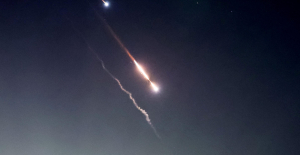 Iran's attack on Israel: these false, misleading images spreading on social networks
Iran's attack on Israel: these false, misleading images spreading on social networks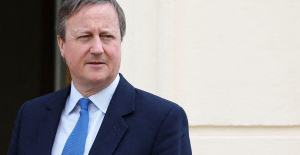 Iran-Israel: David Cameron wants the G7 to impose “coordinated sanctions” on Iran
Iran-Israel: David Cameron wants the G7 to impose “coordinated sanctions” on Iran New generation mosquito nets prove much more effective against malaria
New generation mosquito nets prove much more effective against malaria Covid-19: everything you need to know about the new vaccination campaign which is starting
Covid-19: everything you need to know about the new vaccination campaign which is starting The best laptops of the moment boast artificial intelligence
The best laptops of the moment boast artificial intelligence Amazon invests 700 million in robotizing its warehouses in Europe
Amazon invests 700 million in robotizing its warehouses in Europe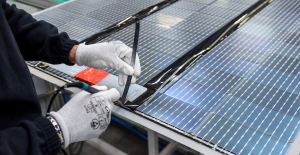 Solar panels: French manufacturer Systovi announces the cessation of its activities due to “Chinese dumping”
Solar panels: French manufacturer Systovi announces the cessation of its activities due to “Chinese dumping” Tesla: canceled in court, Musk's huge compensation plan will again be submitted to shareholders
Tesla: canceled in court, Musk's huge compensation plan will again be submitted to shareholders Two, three or a hundred euros: who are the most generous customers with tips?
Two, three or a hundred euros: who are the most generous customers with tips?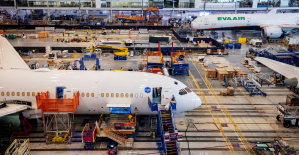 Boeing safety examined in US Senate, after whistleblower's revelations
Boeing safety examined in US Senate, after whistleblower's revelations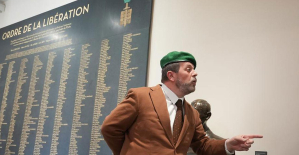 Immersion among the companions of the Liberation
Immersion among the companions of the Liberation Provence-Alpes-Côte d’Azur releases several hundred thousand euros for the promotion of the work of Marcel Pagnol
Provence-Alpes-Côte d’Azur releases several hundred thousand euros for the promotion of the work of Marcel Pagnol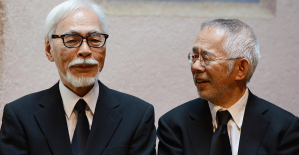 A palm of honor distinguishes Studios Ghibli for all of their work
A palm of honor distinguishes Studios Ghibli for all of their work Gaby, a new play by Pagnol adapted into a comic strip
Gaby, a new play by Pagnol adapted into a comic strip Skoda Kodiaq 2024: a 'beast' plug-in hybrid SUV
Skoda Kodiaq 2024: a 'beast' plug-in hybrid SUV Tesla launches a new Model Y with 600 km of autonomy at a "more accessible price"
Tesla launches a new Model Y with 600 km of autonomy at a "more accessible price" The 10 best-selling cars in March 2024 in Spain: sales fall due to Easter
The 10 best-selling cars in March 2024 in Spain: sales fall due to Easter A private jet company buys more than 100 flying cars
A private jet company buys more than 100 flying cars This is how housing prices have changed in Spain in the last decade
This is how housing prices have changed in Spain in the last decade The home mortgage firm drops 10% in January and interest soars to 3.46%
The home mortgage firm drops 10% in January and interest soars to 3.46% The jewel of the Rocío de Nagüeles urbanization: a dream villa in Marbella
The jewel of the Rocío de Nagüeles urbanization: a dream villa in Marbella Rental prices grow by 7.3% in February: where does it go up and where does it go down?
Rental prices grow by 7.3% in February: where does it go up and where does it go down? Europeans: the schedule of debates to follow between now and June 9
Europeans: the schedule of debates to follow between now and June 9 Europeans: “In France, there is a left and there is a right,” assures Bellamy
Europeans: “In France, there is a left and there is a right,” assures Bellamy During the night of the economy, the right points out the budgetary flaws of the macronie
During the night of the economy, the right points out the budgetary flaws of the macronie Europeans: Glucksmann denounces “Emmanuel Macron’s failure” in the face of Bardella’s success
Europeans: Glucksmann denounces “Emmanuel Macron’s failure” in the face of Bardella’s success These French cities that will boycott the World Cup in Qatar
These French cities that will boycott the World Cup in Qatar Union Bordeaux Bègles-Clermont: at what time and on which channel to follow the Top 14 clash?
Union Bordeaux Bègles-Clermont: at what time and on which channel to follow the Top 14 clash? Football: Ada Hegerberg extends at OL until 2027
Football: Ada Hegerberg extends at OL until 2027 Basketball: suspended for life from NBA for fixing his match
Basketball: suspended for life from NBA for fixing his match Paris 2024 Olympic Games: boxer Estelle Mossely wants to parade on the Seine as a flag bearer
Paris 2024 Olympic Games: boxer Estelle Mossely wants to parade on the Seine as a flag bearer




